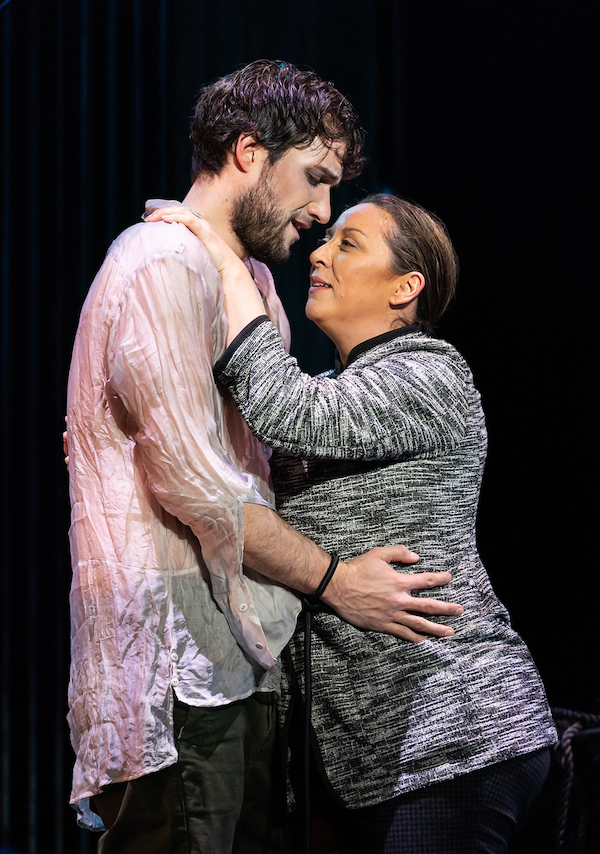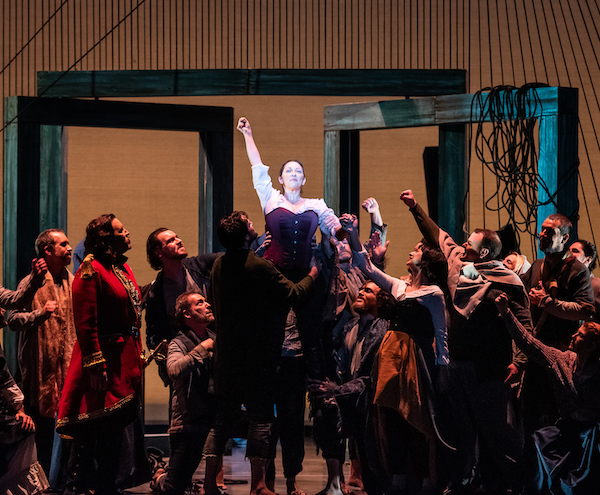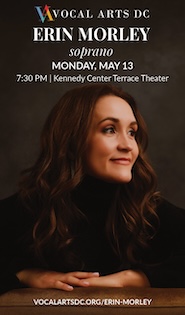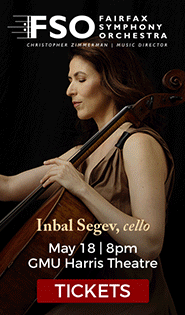Beethoven’s “Leonore” lives again in Opera Lafayette’s fascinating revival

Opera Lafayette is celebrating its silver anniversary in style. On Wednesday night, Ryan Brown conducted a new production of the original 1805 version of Beethoven’s only opera. The composer wanted to title his opera Leonore, but the theater insisted it be Fidelio. This staged restoration of the original music, including the reconstruction of a missing aria, played for one night in the Kennedy Center Eisenhower Theater.
The companion piece to the evening was Opera Lafayette’s winning revival of Pierre Gaveaux’s opéra comique Leonore back in 2017. Premiered in 1798, that opera’s libretto was the basis for Beethoven’s new work, and by pairing the two works, this intrepid company has shown a strong musical and dramatic influence from it on Beethoven as well.
Joseph Sonnleithner’s libretto, supposedly based on a true episode from the Reign of Terror, relates the unlikely story of a wife, Leonore, who infiltrates a secret prison. Disguised as a man named Fidelio, she is able to rescue her husband, Florestan, a political prisoner who has been condemned for his attempts to expose these hidden jails.
Canadian tenor Jean-Michel Richer, who sang the role of Florestan in the Gaveaux opera in 2017, returned to take the same role in Beethoven’s Leonore. His sweet, pleading tone marked the pathos-heavy opening of the third act, where the famished prisoner, near death, calls out to his wife, whom he believes to be far away. With both heroic tone in fuller moments and a light head voice that blended into ensembles, as well as a handsome stage presence, Richer stood out for praise.
Soprano Nathalie Paulin interpreted the title role with much subtlety, a warm voice enriched with ample vibrato and a smoky legato on fast-moving passages. Beethoven made some heroic demands, especially in the high notes of the third act (as in the duet “O namenlose Freude”), which were not fully in her arsenal. Overall this was a sympathetic performance, believable en travesti and musically shaped with care.

Paternal wisdom flowed from the resonant bass-baritone of Stephen Hegedus’s Rocco, the mostly benevolent jailer who watches over the prison. As his daughter, Marzelline, soprano Pascale Beaudin had a healthy sound, a prominent vibrato easing the agility of her runs and adding a flirtatious quality that suited the character. Her lighter voice also paired beautifully with the Jaquino of tenor Keven Geddes, who sang with guileless good humor.
Bass-baritone Matthew Scollin inhabited every villainous stereotype as Pizarro, the corrupt politician who has imprisoned Florestan unjustly for trying to expose him. His robust voice, aided by a reptilian stage presence, made the character fun to hate. His foil, the Don Fernando of bass-baritone Alexandre Sylvestre, seemed somewhat bland by comparison when he showed up at the prison to free Florestan.
The Opera Lafayette Chorus was small in number at sixteen singers. They produced enough sound as a complete group in Act III, but with only eight men the four-part prisoners’ chorus was pale and underpowered, perhaps right for the staging but musically unsatisfying. Ryan Brown conducted the Opera Lafayette Orchestra, which sounded too delicate sunk deep in the Eisenhower Theater pit. Beethoven’s demands particularly seemed to tax the horns and bassoons.
Oriol Thomas reprised his staging from the 2017 production of Gaveaux’s Leonore, down to the abstract set of girders and ropes evoking the prison, designed by Laurence Mongeau, who also created the period costumes. This only heightened the perception of the debt owed by Beethoven to the Gaveaux original, especially in this first version, which hewed quite closely to its model.
Other groups have performed or recorded Beethoven’s 1805 Leonore before, notably Washington Concert Opera in 2017. Only one element of the original score has remained unknown: the aria sung by Florestan at the start of the third act, most of which was lost during revisions. Other conductors have used the 1806 revision of the aria, but Opera Lafayette drew on a reconstruction by conductor Will Crutchfield. While almost entirely hypothetical, it is a beautiful addition to our understanding of the opera.
The impression remains that the best Fidelio would be a mix of the versions: keep the better overture and Act III Finale of the final version, but reinstate all or some of the beautiful ensembles that Beethoven excised in a revision that went an operatic bridge too far.
Leonore will be repeated 7 p.m. March 2 and 4, at Hunter College in New York. operalafayette.org




